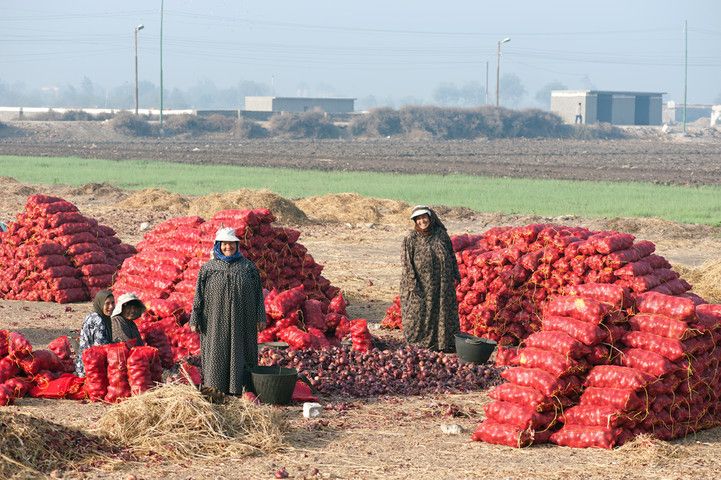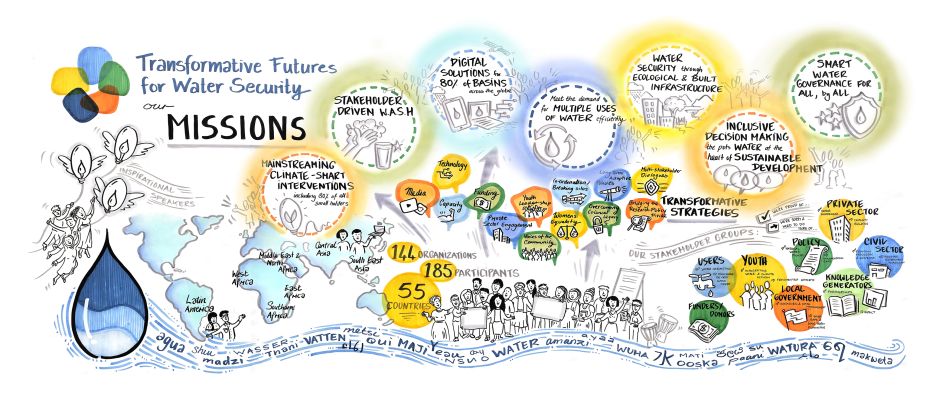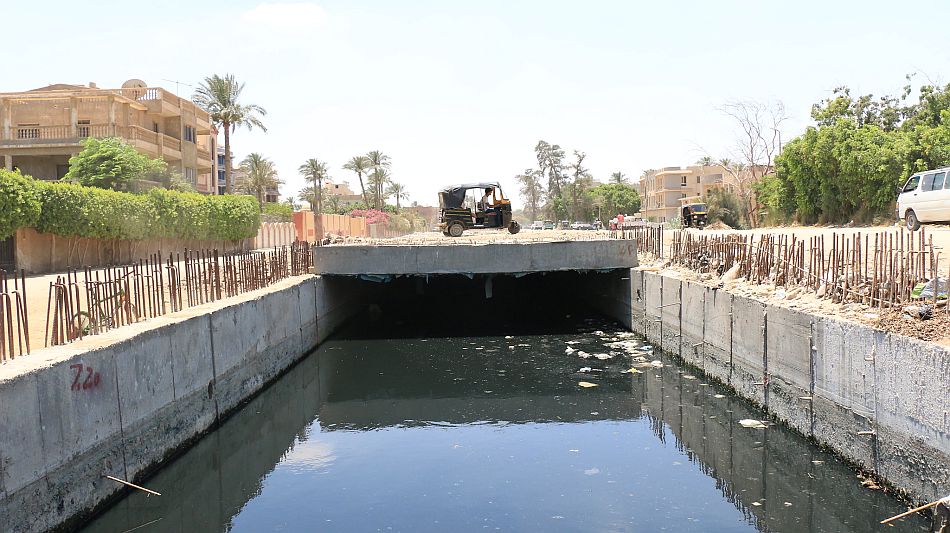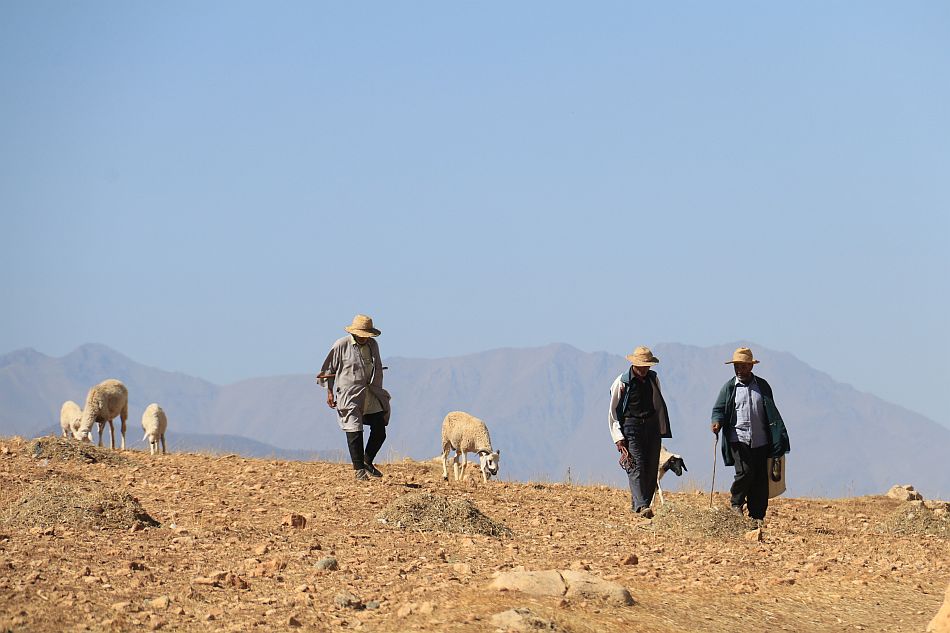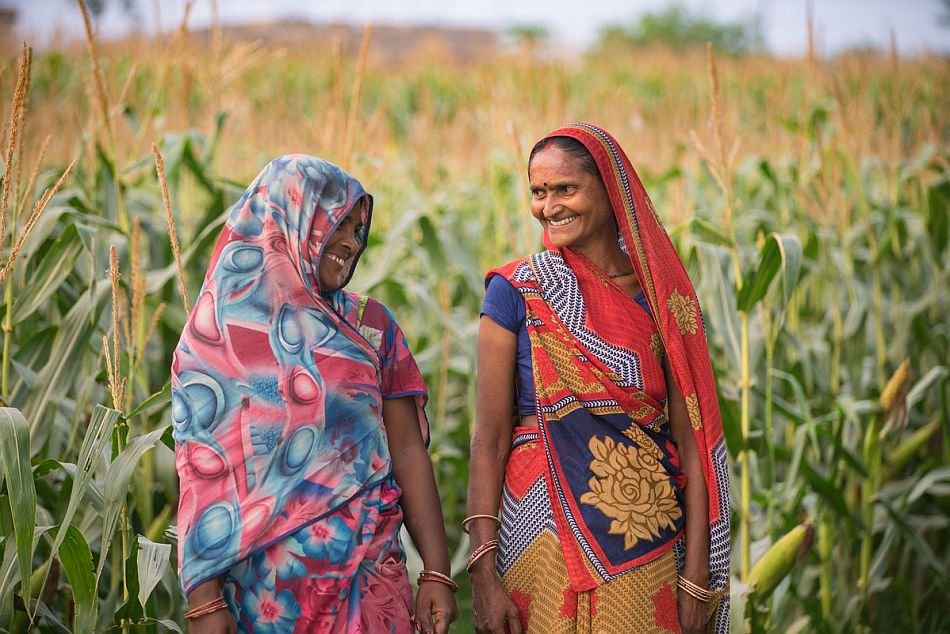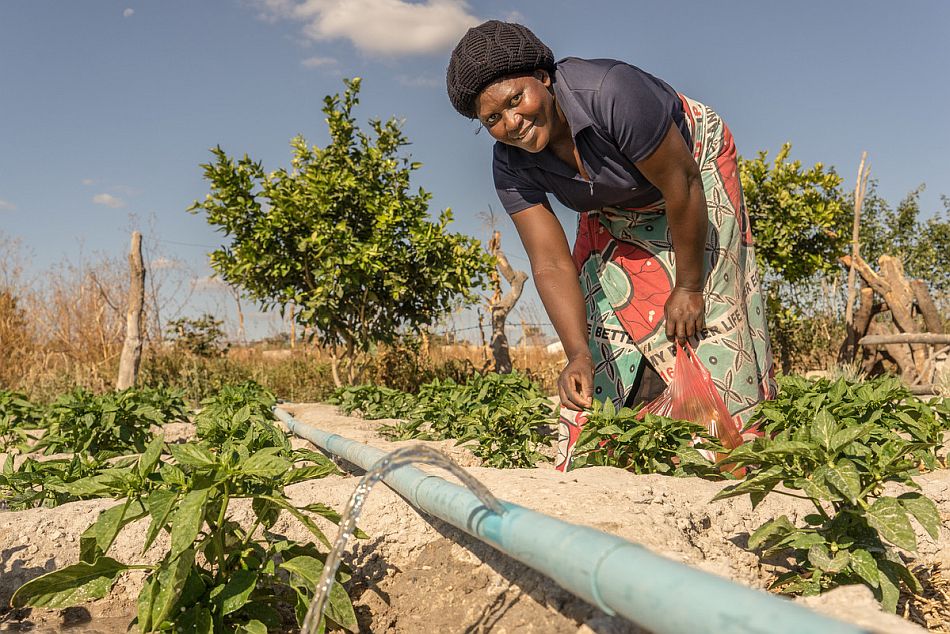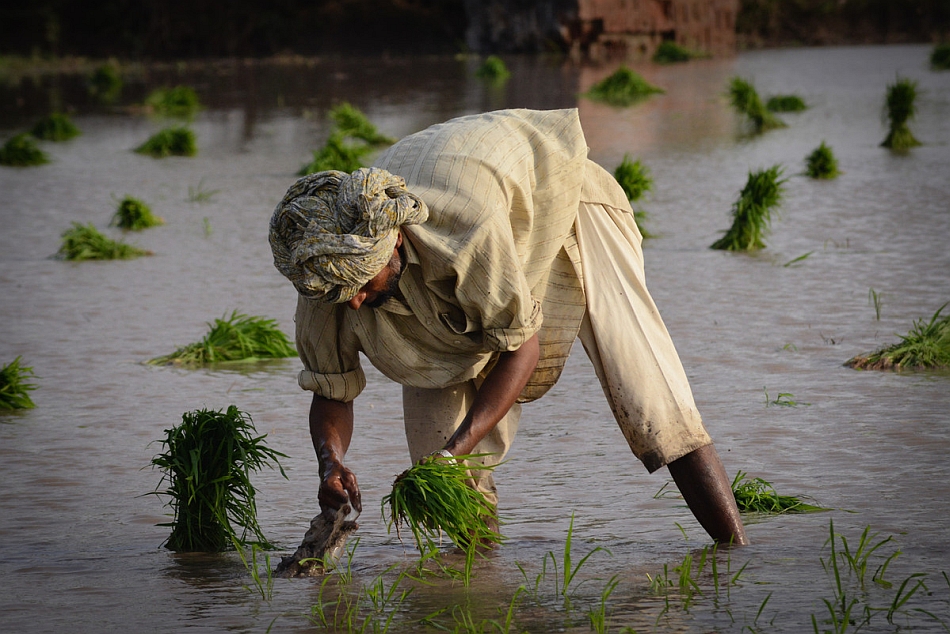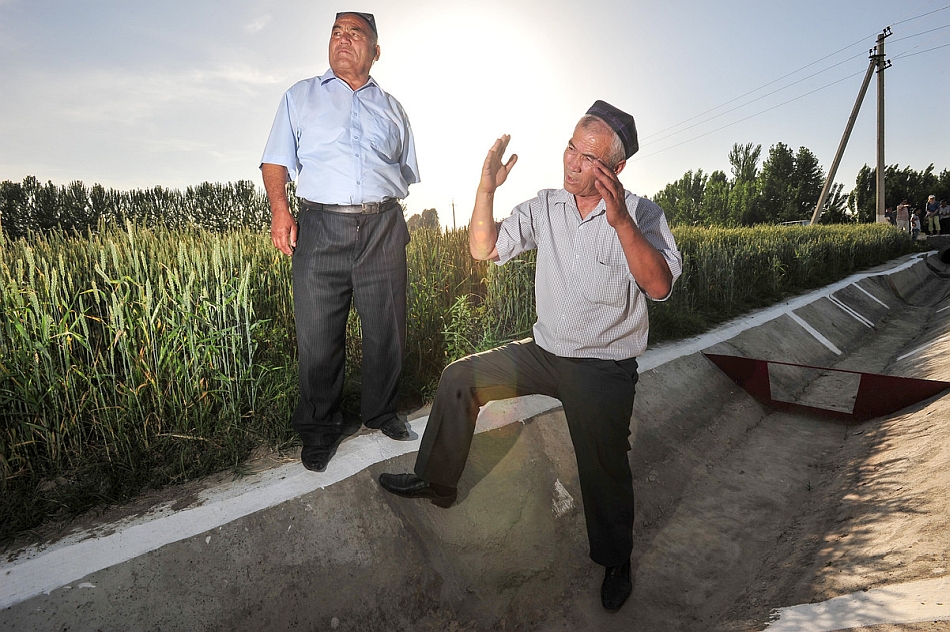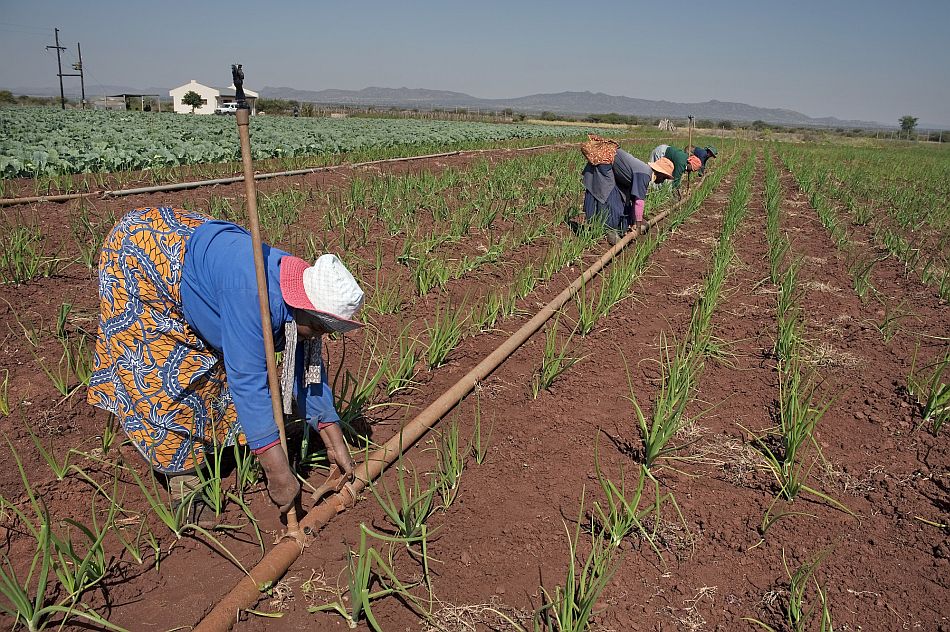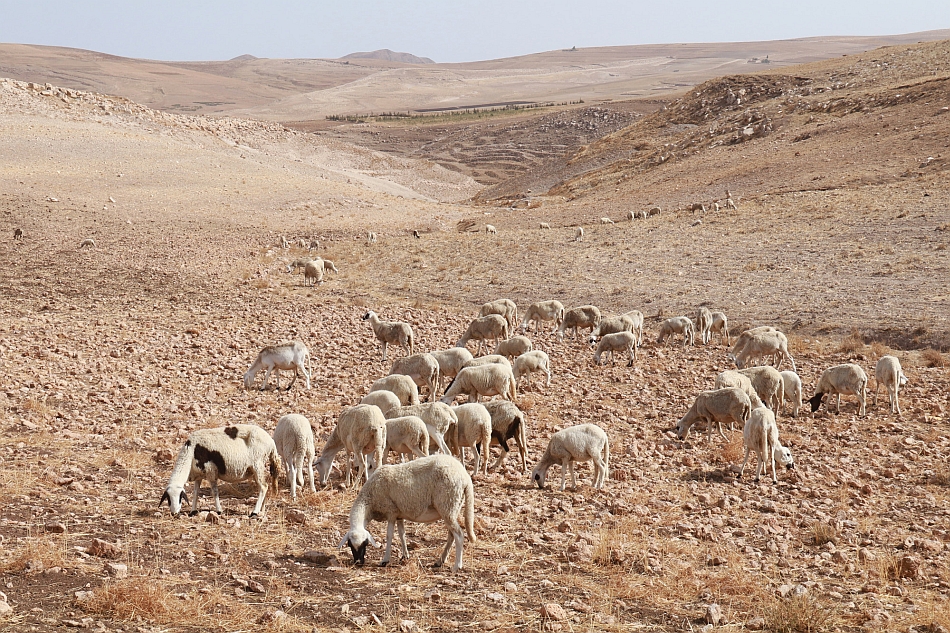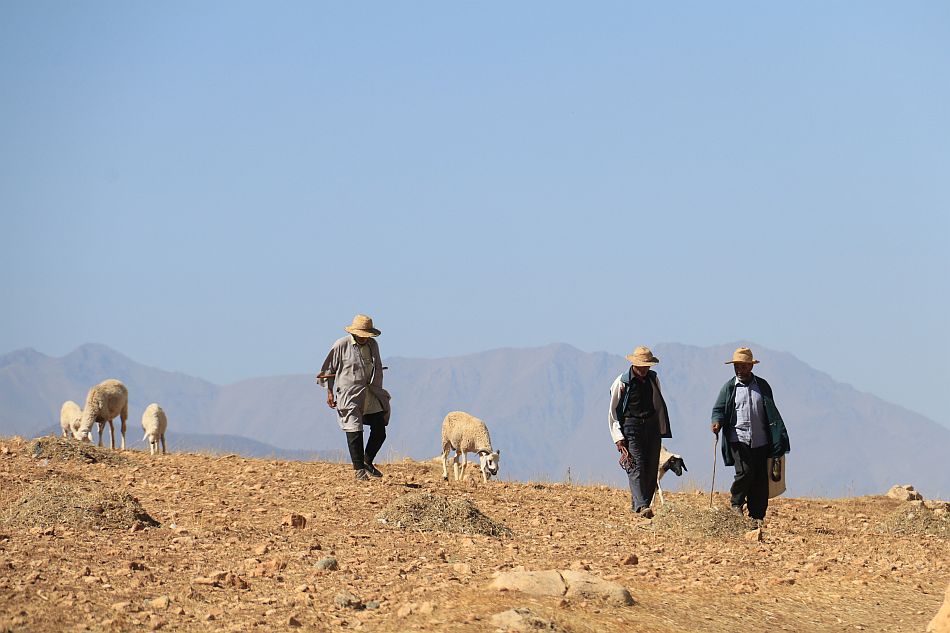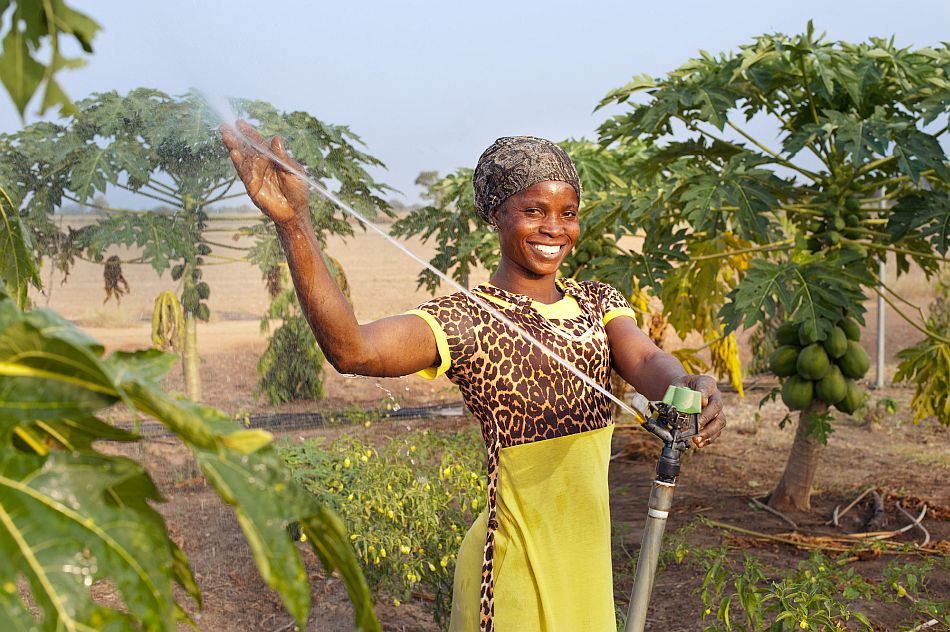By Radhika Singh, IWMI Consultant
UNHCR and the Melkadida Refugee Compact
The Somali Region of Ethiopia hosts hundreds of thousands of Somali refugees fleeing political instability and conflict. These refugees cross the border into Ethiopia in search of security and humanitarian relief. Over the last ten years refugee settlements such as Melkadida, Bokolmayo, Kobe, Buramino and Helaweyn have been set up to absorb the growing numbers of refugees. Attracted to the facilities and infrastructure provided by humanitarian agencies, members of the host communities have also begun moving into these settlements. As the refugee and host population swells in size, the water supply and irrigation systems in these settlements are coming under increasing pressure.

The United Nations High Commissioner for Refugees (UNHCR) has invested significantly in the development of water systems within these settlements. Yet, amidst a global decline in humanitarian funding, this vital support is decreasing, exacerbating the precarious state of settlement water systems. Consequently, UNHCR has realized that water system development needs to be decoupled from the vagaries of humanitarian funding. This has prompted efforts to handover the responsibility for water systems to local authorities. UNHCR, in partnership with the Ethiopian government, has put together the Melkadida Refugee Compact (MRC) to guide this handover process and attract funding for sustained development. The MRC outlines plans for strengthening water, food and energy security in the area, and identifies priority areas for investment.

Operationalizing the MRC would involve new distribution of roles and responsibilities among the government, humanitarian agencies, the private sector and community-based organizations. It would require rethinking how water systems should be governed for more sustainable and equitable development among hosts and refugees, based on the available resources and abilities. In our report, put together by IWMI as part of the CGIAR Initiative on Fragility, Conflict and Migration, we have identified key issues, opportunities, and potential pathways for improved water security to support the handover process and help operationalize the MRC.
Challenges in Water Supply and Irrigation
The water supply systems in the Somali region have faced significant hurdles. Initially set up to serve a fraction of the current population of refugees and hosts, water infrastructure and equipment now suffer from frequent breakdowns and maintenance issues. Climate-related stresses, such as drought and flooding, contribute to their dysfunctionality.
Drought and flooding are regular occurrences in the Somali Region. Even while the region was recovering from a multi-year drought—the worst in 40 years—flooding in late 2023 left farms inundated with water, severely damaging water-related equipment and infrastructure. During droughts water levels drop and pumping water becomes a real challenge. The disruptions to water supply during drought or flooding events mean vulnerable people are often forced to resort to using unsafe water sources, which can lead to the spread of water-borne diseases.

Periods of water scarcity can also cause tensions to flare between refugee and host communities, especially when disputes over access to water resources arise. These disagreements can stem from host communities feeling neglected when resources are stretched thin and refugees feeling that their needs aren’t being met. Unauthorized water supply connections to private households and conflicts over land use further add to tensions.

Recommendations for Water Sector Resilience
Several steps can be taken to improve water security in the region’s settlements. First, we must protect our water systems and infrastructure before disasters strike through improved anticipatory action (AA). Second, it is important that we strategize for long-term adaptation to climate change. That means finding different sources of water and trying out new ways to manage our water systems. Third, we need to build resilience to economic stresses by strengthening value chains and supporting local businesses and young entrepreneurs, particularly around solar energy. To accomplish these objectives, we propose the following actions:
- identify prime locations for water harvesting
- upgrade and protect key infrastructure
- raise community trust in meteorological forecasts
- identify new sources of water
- explore innovative water utility models
- develop and strengthen value chains
- encourage innovation systems in solar energy
- address gaps in the water sector through local enterprise
Reforming Governance Approaches
To operationalize our recommendations, we suggest leveraging existing policies and strategies to improve planning around disaster risk reduction and water sector expansion. Reforming governance approaches involves exploring the potential for decentralized water systems, aligning actors’ roles with available capacity and resources and responding to contradictions in humanitarian programming.
Making these changes isn’t easy. High turnover in government and humanitarian agencies makes it difficult to commit to plans. Local and regional governments in the Somali Region struggle to collect taxes, which makes it tough to pay for and maintain important development projects. UNHCR and local authorities therefore need to rethink how they work together and how they involve the communities they’re helping in the governance of water systems. Moving forward, UNHCR could make detailed plans for how to put these recommendations into action, find money to pay for them, agree on everyone’s roles and set up mechanisms for accountability.





